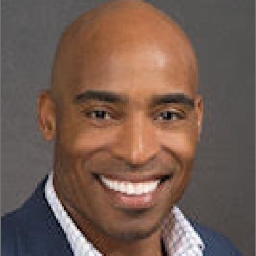
Cannabis Q&A
Tiki Barber is a former National Football League player and all-time leader in rushing yards for the New York Giants. He played college football for the University of Virginia. After his retirement, Barber began a second career in broadcasting and as an entrepreneur. He currently serves as co-host of CBS Sports Radio’s “Tiki & Tierney,” heard across the country. Barber is a member of the CERI Advisory Board.
What compelled you to support CERI and to join the CERI Advisory Board?
When I met Dave (Knowlton, Chairman and CEO of CERI), what struck me was his discussion of maintaining the medicinal side of cannabis. You very quickly realize that once marijuana becomes available recreationally the medicinal side gets lost. That’s concerning. So when Dave explained CERI’s mission of keeping medicinal cannabis at the forefront — where it can benefit many people, including athletes — I knew I wanted to be part of this organization. I should note that neither Dave nor I are consumers of cannabis.
What initiatives would you like CERI to pursue?
The area of sports and athletics greatly interests me — it’s an area where I have significant experience — and I believe that CERI could be a resource for sports leagues, including some that are beginning to investigate the benefits of marijuana and CBD (a component of marijuana that does not cause a “high”). Given the background of the health care experts on the CERI board, I also believe that CERI could be a credible resource for both health care providers and for consumers. You have patients who have exhausted myriad methods of relief from different ailments — maybe anxiety, pain, epilepsy — and they start to look toward cannabis. And if their health providers do not have access to credible information about cannabis, there’s a missed opportunity for perhaps a safer and more effective intervention.
What role do you see cannabis having in the fields of athletics, both professional and non-professional?
Athletics by their nature can impact your body, especially contact sports like football, hockey, and boxing. And the traditional methods of dealing with the trauma and the pain are opioids and anti-inflammatories, often given to athletes in high doses. This can have negative effects on internal organs, such as the liver and kidneys. I think cannabis and CBD can be a valuable alternative. I’m not saying that cannabis is for everyone, but I do think the use of medicinal cannabis needs to be explored — thankfully, we are seeing some sports leagues moving in that direction now. However, the National Football League penalizes players who use medicinal cannabis under a physician’s orders in states where medicinal cannabis is legal.
What do you think needs to change?
In the NFL, if you are found to have even tiny amounts of cannabis in your system you will be penalized. If you are found to use cannabis three times you could lose your career. Perhaps unintentionally, the leagues are being punitive and failing to recognize that athletes are being prescribed or self-medicating to find relief through substances that can be addictive and much more dangerous, such as opioids or alcohol. We’ve seen so many examples of players addicted to opioids. I saw it when I was playing football. Many players must continually increase their dosages to keep getting the same effect.
Is there an example that comes to mind?
I think the most famous example is Brett Favre, one of the greatest quarterbacks in NFL history. He was famous for playing through everything. He would get beat up and still not miss the next game. He has been very public about how he became addicted. He used painkillers for so many years to stay in the game. It was a struggle and a battle for him.
Did you see similar abuse when you were playing?
Yes, and not just with opioids. The same is true with alcohol, which is not talked about as much. When you play a game, you become physically and emotionally heightened — it can be like you’re in battle. It’s hard to come down to a normal physical and emotional level. So you have a beer. Or 10 beers. Or four vodka and tonics. Whatever. Current research has demonstrated that alcohol can compound the effects of the physical trauma and the head trauma. Cannabis is a more natural way to cope. The human body produces Cannabinoids; it’s natural.
As an entrepreneur, you also are a founder of Grove Group Management, an investment company that helps cannabis organizations navigate the unfolding legal environment as well as address areas such as marketing and finance. You want to provide resources in particular to communities of color to provide cannabis access in a culturally sensitive manner. Are you hearing skepticism — and maybe the occasional joke — about your involvement in marijuana?
As I said earlier, I am not a consumer of cannabis. And I can tell you that about five years ago, yea, I would get some ribbing. But now when people hear I am in the marijuana business, they ask, “Tell me more.” So I think things are definitely changing; the majority of states now permit cannabis use medically. Canada is now fully legal. The narrative is changing. It’s been slow at first, but, as consumers and providers get more data to support the use of cannabis as a treatment alternative, we will see the change escalate.
